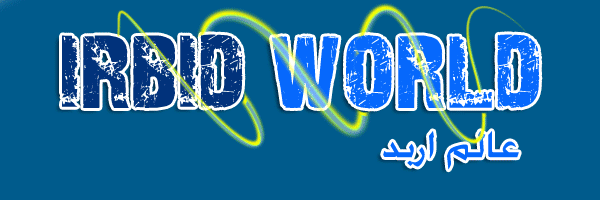b.inside

 |  موضوع: Delusional Disorder موضوع: Delusional Disorder  3/11/2009, 04:05 3/11/2009, 04:05 | |
| Delusional Disorder
Non-bizarre delusions including feelings of being followed, poisoned, infected, deceived or conspired against, or loved at a distance. Non-bizarre referred to real life situations, which could be true, but are not or are greatly exaggerated. Bizarre delusions, which would rule out this disorder, are those such as believing that your stomach is missing or that aliens are seeking you out to be their leader. Delusional disorder can be sub typed into the following categories: erotomanic, grandiose, jealous, persecutory, somatic, and mixed. Symptoms include:
No bizarre delusions for at least one month.
Absence of obviously odd or bizarre behavior.
Schizoaffective Disorder and Mood Disorder with Psychotic Features have been ruled out.
Absence of evidence that an organic factor initiated and maintained this psychotic disturbance.
Absence of prominent hallucinations of a voice for at least one week. Absence of visual hallucinations for at least one week.
Has never met the criteria for the active phase of Schizophrenia.
Subtypes
Erotomanic Type: Predominately erotomanic delusions.
Grandiose Type: Predominately grandiose delusions.
Jealous Type: Predominately delusions of jealousy.
Persecutory Type: Predominately persecutory delusions.
Somatic Type: Predominately somatic delusions.
Unspecified Type: Doesn't fit any of the previous categories.
These patients, who tend to be in their 40's, may be may not realize that they have a delusional disorder until it is pointed out by family or friends. Even the diagnosis may be difficult because many do not voluntarily seek treatment. They are frequently hypersensitive and argumentative. Although they may perform well occupationally and in areas distant from their delusions, they tend to be social isolates either by preference or as a result of their interpersonal inhospitality (i.e., spouses frequently abandon them). Social and occupational dysfunction, when it occurs, usually is in direct response to their delusions.
Associated Features:
Psychosis
Depressed Mood
Somatic or Sexual Dysfunction
Odd or Eccentric or Suspicious Personality
Differential Diagnosis:
Some disorders have similar symptoms. The clinician, therefore, in his diagnostic attempt has to differentiate against the following disorders, which need to be ruled out to establish a precise diagnosis.
Schizophrenia
Mood Disorders
Psychosis NOS
Paranoid Personality Disorder
Body Dysmorphic Disorder
Parkinson's Disease
Huntington's
Vitamin Deficiency
Delirium
Dementia
Drug-Induced
Endocrinopathies
Limbic System Pathology
Serious Liver and Kidney disease.
Cause:
The cause of delusional disorder is not known. Some studies suggest a biological component due to increased prevalence in first-degree relatives of individuals with the disorder. There is a tendency for their family relationships to be characterized by turbulence, callousness, and coldness yet the significance of the patter is unclear typical defense mechanisms seen in these patients include denial, projection, and regression.
A delusional disorder appears to run distinct from schizophrenia and mood disorders, and does not appear to be a prodrome to either of these conditions.
Biologic Theories: the relatively common occurrence of delusions in neurological illness has led investigators to speculate on the role of the limbic system, basal ganglia, and neocortical association areas. No good current unifying theory
Psychodynamic Theories: use of the defense mechanisms of reaction formation, denial, and projection: e.g. paranoia
Treatment:
Hospitalize if patient is a danger to self or others, need a rapid diagnostic work-up. Antipsychotic drugs are the drugs of choice, efficacy are not clear.
Counseling and Psychotherapy [See Therapy Section ]:
Pharmacotherapy [See Psychopharmacology Section ] :
Medications can be helpful but are often refused due to the nature of the disorder. Some individuals function quite normally, while others may react to their delusion in ways that can greatly disrupt their life.
Antipsychotics: Doses and Side Effects for Chronic Use
Antipsychotics.
Chlorpromazine.
Thioridazine.
Trifluoperazine.
Thiothixene.
Fluphenazine.
Haloperidol.
Special Antipsychotic Adverse Reactions
Neuroleptic Malignant Syndrome. May occur at any point during the course of treatment. Includes symptoms of autonomic instability, altered mental status, which may progress to hyperthermia, stupor, and muscle hypertonicity. Death may occur. Cause: Neuroleptics (phenothiazines, etc.) Characteristics. Same symptoms as malignant hyperthermia (see below) but generally develops over days instead of minutes. Treatment: As per malignant hyperthermia.
Malignant Hyperthermia. Cause. 1:20,000 in response to a muscle-relaxing agent (such as succinylcholine) or an inhaled anesthetic (such as halothane). Is hereditary. May also be secondary to physical or emotional stress. Characteristics. Hyperthermia, muscle rigidity, tachycardia, acidosis, shock, coma, rhabdomyolysis. Treatment includes IV dantrolene 1 to 10 mg/kg IV titrated to effect, management of acidosis and shock, peripheral cooling (see management of heat stroke below).
Tardive Dyskinesia. Involuntary movements of the tongue, face, mouth, or jaw associated with long-term administration of Antipsychotics. Elderly females at highest risk. May be irreversible. | |
|
عدي الزعبي

 |  موضوع: رد: Delusional Disorder موضوع: رد: Delusional Disorder  3/11/2009, 17:10 3/11/2009, 17:10 | |
| | |
|
theredrose

 |  موضوع: رد: Delusional Disorder موضوع: رد: Delusional Disorder  23/6/2011, 02:23 23/6/2011, 02:23 | |
| | |
|





